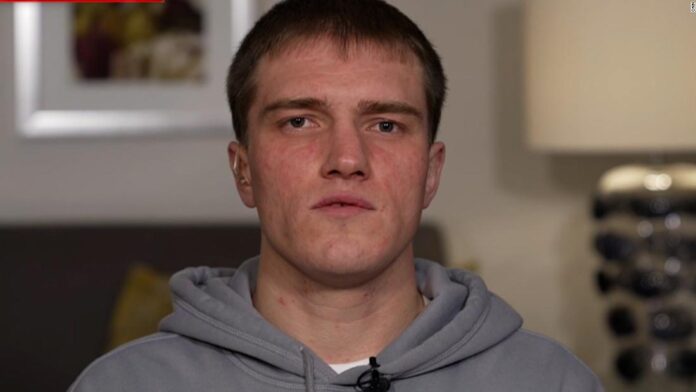A former commander of Russia’s notorious mercenary Wagner Group who is seeking asylum in Norway has apologised for fighting in Ukraine.
Andrei Medvedev said he wanted to speak out about his experiences in the war – and within the private group owned by millionaire Yevgeny Prigozhin, who has ties to Russian President Vladimir Putin – so “the perpetrators are punished” for their crimes.
“Many consider me to be a scoundrel, a criminal, a murderer,” he told Reuters news agency. “First of all, repeatedly, and again, I would like to apologise, and although I don’t know how it would be received, I want to say I’m sorry.
“I want to explain that I am not that person. Yes, I served in Wagner. There are some moments [in my story] that people don’t like, that I joined them at all, but nobody is born smart.”
The 26-year-old said in an interview in Oslo that he witnessed the killing and mistreatment of Russian prisoners taken to Ukraine to fight for Wagner.
He said he fled over the Arctic border, climbing through barbed-wire fences and evading a border patrol with dogs, hearing guards firing shots as he ran through a forest and over the frozen river that separates the two countries.
A special report published by Reuters last week found a graveyard in southern Russia. Many of the men buried on the outskirts of Bakinskaya village in the Krasnodar region were convicts who had been recruited by Wagner to fight in Ukraine.
Kripos, Norway’s national criminal police service, which has responsibility for investigating war crimes, has started questioning the former Wagner commander about his experiences in Ukraine. He has a status as a witness.
Born in the region of Tomsk in Siberia, he said he was placed in an orphanage when he was 12 after the death of his mother and the disappearance of his father.
Having previously been drafted in the Russian military in 2014, aged 18, and served with the Ulyanovsk-based 31st Airborne Brigade in Donbas, he said he joined the Wagner Group after serving his last prison term in July 2022.
After signing a four-month contract for a monthly salary of around 250,000 roubles (£2,884). He crossed the border into Ukraine on 16 July and fought near Bakhmut.
“It was f***** up. The roads to Artemovsk were littered with the corpses of our soldiers,” he said, using the Russian place name for Bakhmut. “The losses were heavy… I saw many friends die.”
He led a squad, taking orders from a platoon commander and planning combat missions – and witnessed two people who did not want to fight being shot in front of freshly recruited prisoners.
“The scariest thing? To realise that there are people who consider themselves to be your compatriots, and who could come and kill you in an instant, or on someone’s orders,” he said. “Your own people. That probably was the scariest thing.”
He is the first known fighter from the Wagner Group who fought in Ukraine to flee abroad.
The Wagner Group is a Russian mercenary organisation. It is a network of companies and groups rather than a single entity, and includes a large number of convicts recruited in Russian prisons, who have spearheaded attacks in Ukraine.
The group has also become increasingly influential in Africa, where it has been building alliances, spreading Russian disinformation and gaining access to oil, gas, gold and other valuable minerals.

